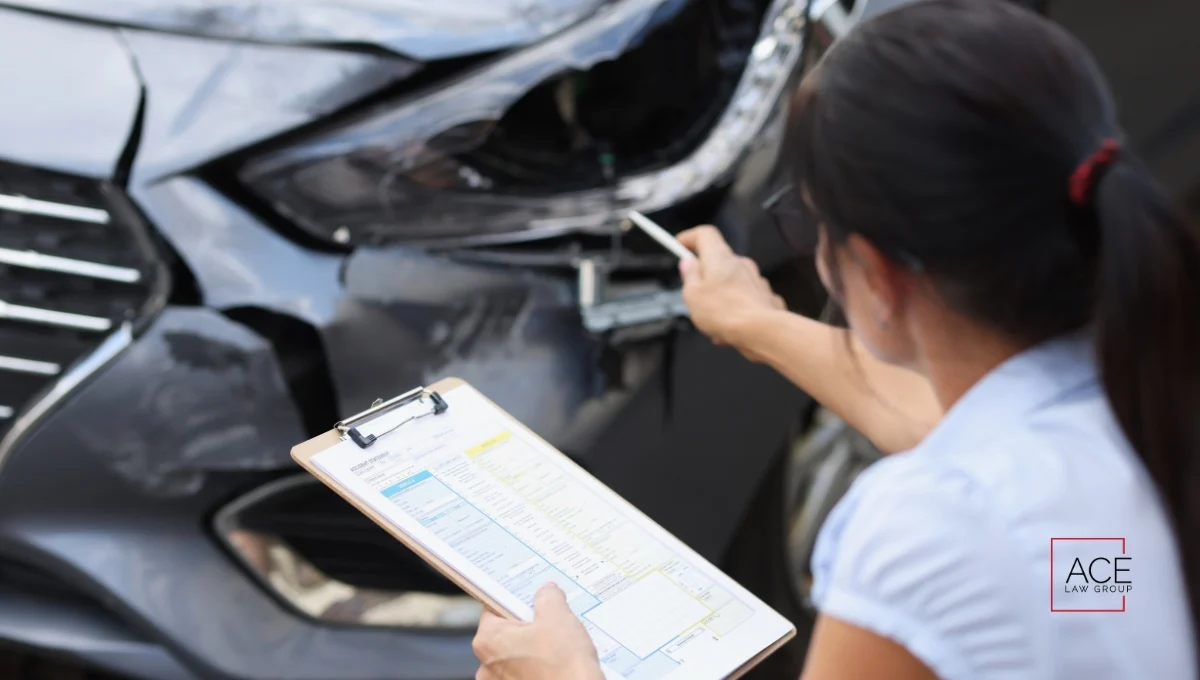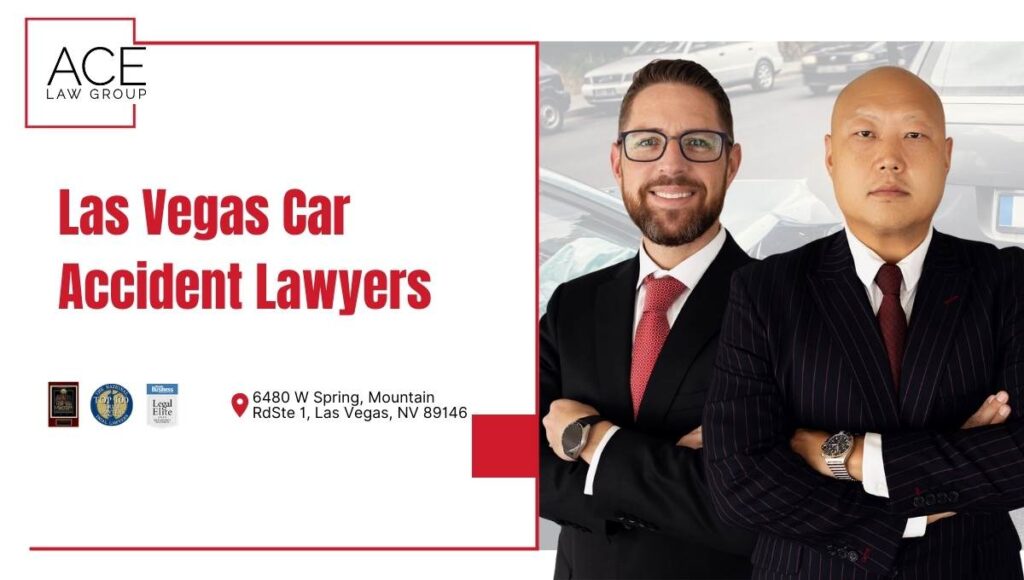Under Nevada law, a car accident victim may seek compensation from the negligent driver or other responsible parties whose actions caused injuries. Unlike states that follow a “no-fault” rule, Nevada does not require car accident victims to seek coverage from their insurer first. This typically means the negligent driver’s insurance company is likely to handle any car accident claim.
Of course, insurance companies are not in business to help car accident victims. They are in business to make money for their shareholders. As a result, insurance adjusters often employ dubious tactics, including presenting initial settlement offers that are far below a car accident victim’s actual losses. In most cases, the insurer is counting on the fact the victim does not even fully realize the value of their claim.
If you are the victim of a car accident in Las Vegas, one way to avoid this problem is to work with an experienced Las Vegas car accident lawyer. At Ace Law Group, we represent accident victims seeking compensation. We have a proven track record of obtaining seven-figure verdicts and settlements for our clients in car accident claims. We are happy to sit down with you, learn more about your recent auto accident, and advise you on the potential value of your personal injury claim.
How Damages Work in a Nevada Personal Injury Claim
Damages is a legal term used to describe the amount of monetary compensation a car accident receives in a personal injury lawsuit. There are two principal forms of damages available in a car accident claim: Special and general damages.
Of the two, special damages, also known as economic damages, are easier to calculate. Special damages include just about any loss tied to a car accident that can be easily quantified, i.e., for any property for which there is a bill or receipt. One way to look at special damages is to combine all your out-of-pocket expenses from the accident. This includes any of the following:
- Medical Care: Any bill you receive for treatment for your accident injuries, including diagnosis costs, medications, and rehabilitation or physical therapy. This includes estimates of any future medical care you are likely to require for your injuries. You can also seek damages for incidental costs related to medical care, such as transportation to or from your doctor’s appointments.
- Long-Term Care: If your car accident injuries are particularly severe and are likely to require any form of long-term care, your economic damages may cover an estimate of those costs.
- Lost Income: Recovering from a car accident often means missing work time. For this reason, your special damages include any loss of income due to this time missed from work. Even if you have a job where you can take sick leave or paid vacation time, you can still include those days as part of your lost income. You may also be able to seek compensation for a lost financial opportunity, such as a freelance job you were unable to accept due to your injuries.
- Diminished Earning Capacity: Similar to damages for long-term care, if your accident injuries permanently restrict or limit your ability to earn a living long-term, your car accident claim may include an estimate of such losses. For instance, if you are never able to return to your pre-accident job or you are unlikely to ever advance in your career due to your injuries, this would entitle you to compensation for diminished earning capacity.
- Replacement Services: An often overlooked component of economic damages is the need to hire someone to perform basic household tasks that you are unable to do due to your injuries. Such replacement services may include having someone clean your house, mow your lawn, or even provide child care.
- Property Damage: This category includes damage to your car or any of its contents in the accident.

General damages, also called non-economic damages, is the more difficult category to quantify. Indeed, there is no way to precisely calculate general damages as they involve losses that cannot be measured to begin with. Non-economic damages cover losses that can vary depending on the specific nature of the accident and the resulting physical and psychological injuries. Such damages include:
- the victim’s ongoing pain and suffering due to their injuries;
- the victim’s emotional distress due to the accident;
- the victim’s loss of enjoyment of life; and
- the permanent effects of certain catastrophic injuries such as disfigurement, loss of a limb, or scarring.
Nevada law does not restrict or “cap” non-economic damages in most car injury cases. And since there are no bills or receipts that can be used to determine a precise amount of general damages, the rule of thumb when seeking a settlement or jury verdict is to apply a “multiplier” to the total amount of economic damages. The multiplier depends largely on the severity of the injuries. In a car accident where the victim sustains relatively minor injuries, a multiplier of 1 or 2 times the amount of economic damages may be sufficient. But if the victim sustained serious injuries, a multiplier of 3 to 5 times economic damages may be more appropriate.
Comparative Fault and Car Accident Claims
One thing car accident victims need to be aware of is Nevada’s comparative fault rule in personal injury cases. In brief, this rule means that the negligent driver and their insurance company can try to shift the blame to the victim for what happened. By law, a court will reduce an award of damages to count for the victim’s share of the fault, if any, as measured in percentage terms. Comparative fault is therefore something that must be taken into account when negotiating a settlement or seeking a jury verdict. Fortunately, a victim can still recover a portion of their damages even if they are found partially at fault, provided they are not more than 50 percent responsible.
Contact Ace Law Group Today
As you can see, valuing a potential car accident claim requires consideration of many factors. This is why you should consult with an experienced Las Vegas car accident lawyer with years of specialization in helping auto accident victims before attempting to negotiate with an insurance company or filing a personal injury lawsuit or claim on your own.

Call Ace Law Group today at (702) 478-3372 or contact us online to schedule a free initial consultation.